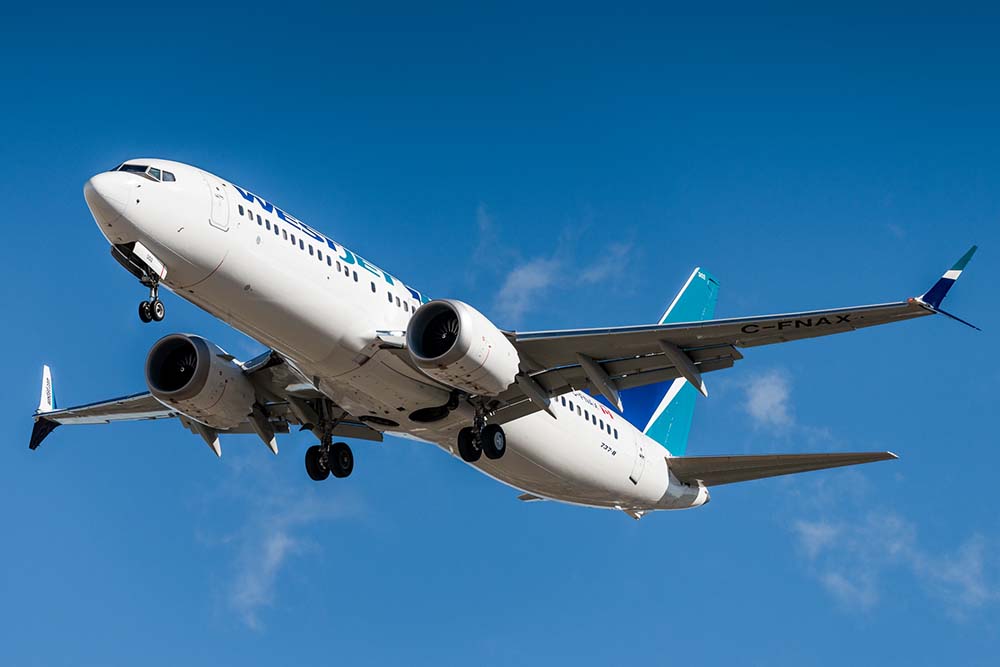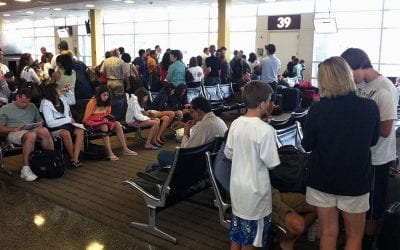After a series of mishaps, United Airlines CEO Kirby claims, “planes are safe.”

According to the San Francisco Chronicle:
A plane turned back shortly after takeoff. Another was missing an external panel upon landing. Yet another lost a wheel during takeoff.
In recent weeks, there have been 10 safety incidents on United flights in and out of San Francisco International Airport. This may sound like a one airport, one airline problem. It’s not. Although the correlation is a statistical anomaly, these events highlight a larger challenge facing the Federal Aviation Administration and Congress.

8 Incidents in Two Weeks: What’s Going On with United’s Planes? This NYTs headline said it all.
No airline CEO wants to see headlines like this. It might just be bad luck and not part of a systemic problem, but to passengers it is troubling. When an airline gets this kind of attention, the CEO is expected to make a statement.
Most of the incidents reported in the last two weeks required emergency landings or diversions.
March 4: A Boeing 737-900 departing from George Bush Intercontinental Airport in Houston returned to the airport to make an emergency landing after one of the plane engines ingested and burned plastic wrap.
March 7: A Boeing 777 leaving San Francisco for Osaka, Japan, made an emergency landing at Los Angeles International Airport after the aircraft lost a tire.
March 8: A Boeing 737 Max 8 veered off the runway upon landing at George Bush Airport in Houston and tilted onto the grass.
Later that day, a flight leaving San Francisco for Mexico City was diverted to Los Angeles after the Airbus A320 experienced issues with its hydraulic system.
March 9: An Airbus A320 heading to Salt Lake City turned back to Chicago O’Hare International Airport after it reported maintenance issues.
March 11: A Boeing 777, flying from Sydney, Australia, to San Francisco, turned back after takeoff because the plane had a hydraulic leak.
March 14: An Airbus A320 that departed from Dallas Fort Worth International Airport had a hydraulic leak shortly before it landed in its scheduled destination, San Francisco.
Later that day, a Boeing 737-800 that took off from San Francisco landed at Rogue Valley International Medford Airport in Oregon missing an external panel.
This is not the news that’s fit to print. Promising planes are safe gives CEOs fits.
The problems are widespread; both pilot and corporate greed have played out. Now passengers wonder if planes are safe.
Both Boeing and Airbus have had problems either from their own actions or those of their contractors. Boeing has had to deal with production gliches of Spirit Aerosystems and Airbus has had jet engine problems created by Pratt and Whitney. These contractors have exacerbated the issues at the plane manufacturers, especially at Boeing.
The San Francisco Chronicle noted that, “A key factor was the US airline industry’s decision to use some of its more than $50 billion in COVID bailout money to finance the early retirement of thousands of pilots.”
In his letter to frequent fliers, CEO Kirby put it bluntly. “Safety is our highest priority.”
His letter to frequent flyers went on:
Safety is our highest priority and is at the center of everything we do.
Unfortunately, in the past few weeks, our airline has experienced a number of incidents that are reminders of the importance of safety. While they are all unrelated, I want you to know that these incidents have our attention and have sharpened our focus.
Our team is reviewing the details of each case to understand what happened and using those insights to inform our safety training and procedures across all employee groups. This is in addition to some changes that were already planned, including an extra day of in-person training for all pilots starting in May and a centralized training curriculum for our new-hire maintenance technicians. We’re also dedicating more resources to supplier network management.
This kind of attention to safety makes travelers fearful. CEOs want answers.

This week airline CEOs asked Boeing for a meeting with their leadership, as reported in the Wall Street Journal.
A group of airline chiefs recently requested a meeting with Boeing’s board to express concern over the Alaska Airlines accident and production problems that have upended the industry’s plans, people familiar with the matter said.
The airline bosses want Boeing directors to address the mounting fallout from the Jan. 5 panel blowout on a 737 MAX and to spell out their plan for fixing the aircraft maker’s quality problems.
…
“I, and I know other CEOs, have told Boeing, get the issues understood and get the issues fixed,” Southwest CEO Bob Jordan said during an investor conference earlier this month. “Stop, take the time, understand what’s going on, fix the culture, whatever is at work here. But fix this, because we all need Boeing to be stronger, two years from now, five years from now, 10 years from now.”
Until Boeing provides some answers to the airline executives and passengers, problems will continue.
Friends of mine want airlines to say which planes passengers will be flying on. They all have said to me, “I’m not flying on a Boeing airplane if I can.”
READ ALSO:
When airline passengers can get refunds on non-refundable tickets
Don’t forget to secure carry-on bags overhead

Charlie Leocha is the President of Travelers United. He has been working in Washington, DC, for the past 14 years with Congress, the Department of Transportation, and industry stakeholders on travel issues. He was the first consumer representative to the Advisory Committee for Aviation Consumer Protections appointed by the Secretary of Transportation from 2012 through 2018.



